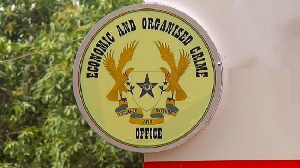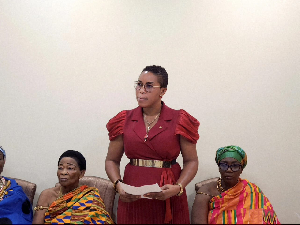Graduating female engineering students at the 53rd congregation of the College of Engineering (CoE), Kwame Nkrumah University of Science and Technology (KNUST), have made an all-time record in the institution’s history, posting the most outstanding academic performances.
“For this graduating cohort, six female students came tops in all the 15 programmes in engineering, also for civil engineering, in particular, the top three students are all females,” Professor Mark Adom-Asamoah, Provost of the College, told the congregation.
Additionally, 50 females out of the total 866 undergraduate engineering students presented for the ceremony graduated with a First-Class Honours degree.
Significantly, he said, 92 per cent of all the females graduating in engineering fell within the First Class or Second-Class Upper Honours degree.
The outstanding female engineering students included Bozoma Kofichie - Agriculture Engineering, Stefania Akromah – Materials Engineering, Ermyntrude Adjei – Biomedical Engineering, Tometta Bright-Davies – Civil Engineering, and Ida Kwam Ngongkum - Petrochemical Engineering.
The development is seen by the University authorities as very encouraging, especially in a country experiencing huge inequality deficit in gender participation in engineering, one of the science, technology, engineering and mathematics (STEM) disciplines.
Prof. Adom-Asamoah attributed the sterling performance to the STEM initiative, introduced by the Vice-Chancellor, Prof. Kwasi Obiri-Danso, upon his assumption of office.
Female population in the College had since 2016 increased from 600 to 1, 100 through that affirmative action and gender-targeted outreach campaigns.
The gender policy in STEM fields, according to the authorities, was being pursued to overcome traditional beliefs and other obstacles that discouraged females from patronizing such programmes.
It is part of efforts to ensure a fair balance in the STEM participation.
Prof. Adom-Asamoah said the College comprised three faculties - 10 academic departments and five research centres.
It has an undergraduate population of 6, 500 and postgraduate population of 533.
This year’s congregation saw a total of 56 postgraduate students, including 16 Doctors of Philosophy (PhDs) presented with their certificates.
General News of Saturday, 27 July 2019
Source: ghananewsagency.org













